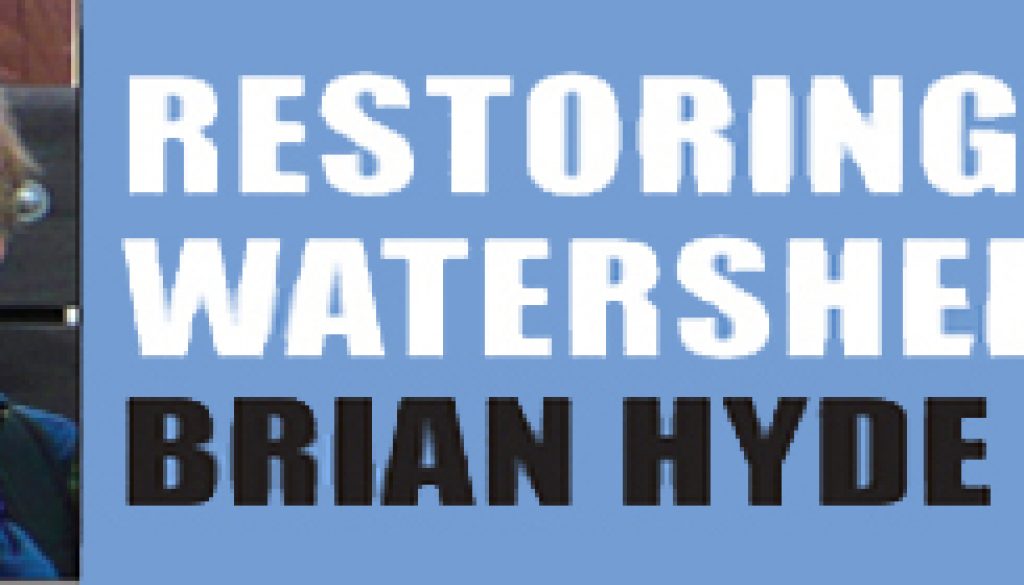Team Up With Gravity
Ideas To Get Started On Stormwater
Remember that water flows downhill. You can fight gravity, but why? Instead, let’s consider options for teaming up with gravity.
On Jan. 12, attendees at a public meeting about stormwater in northeast Denver, held in the City Park Golf Course clubhouse, a lot of concern was expressed about water quality (as in potentially very polluted stormwater that might be detained on City Park Golf Course during floods).
Because of geography and gravity, most of the rain that hits Montclair and Mayfair, and the southwestern third of Park Hill, ends up flowing downhill and entering City Park near 17th Avenue and Colorado Boulevard. If that stormwater is contaminated, what role does our community play in contaminating it?
And what about the stormwater originating in or near the other two thirds of Park Hill? It flows in the general direction of the Park Hill Golf Course.
Idea #1 – Monitor Stormwater Quality in Montclair and Park Hill Watersheds
Denver, the Urban Drainage & Flood Control District, businesses, individual citizens, and other interested parties can join forces to install, operate, maintain and learn from stormwater quality monitoring stations upstream of City Park, upstream of Park Hill Golf Course, as well as within and downstream of Park Hill Golf Course.
Even before we have any scientific data regarding current stormwater quality in and around Greater Park Hill, some of you may be asking, “What can we as a community do to improve stormwater quality?” and “What can I do at my house or business?”
If you are not asking those questions, this is a good time to start. My contribution toward answers to those questions will be to start asking our city, the Urban Drainage & Flood Control District, the Colorado Stormwater Center at CSU in Fort Colins, professional organizations like the Colorado Association of Stormwater & Floodplain Managers and the Colorado chapter of the American Society of Landscape Architects, and others to help us put together a set of workshops, demonstration projects, and manuals/guides for individual stormwater quality improvement projects in Greater Park Hill.
Idea #2 – Develop Guidance for Individual Stormwater Quality Improvement Projects in Montclair and Park Hill Watersheds
I will strongly encourage Denver, the Urban Drainage & Flood Control District, the Colorado Stormwater Center, professional organizations like CASFM and ASLA Colorado, and others to help our community organize workshops, build demonstration projects, and assemble training manuals so businesses, individual citizens, and other interested parties can learn how to install and maintain individual stormwater quality improvement facilities in Greater Park Hill.
Finally, if you have parked your car at Sprouts, at Colfax and Garfield, or at the Sam Gary Library in Stapleton, you have likely seen the signs warning you about parking in a stormwater basin. Guess what? Some blocks of Park Hill are potentially far more dangerous places to park your car than those two lots. Just a block east of Sprouts, Jackson Street is much more dangerous, all the way from Colfax to 17th Avenue.
Those two blocks of Jackson and numerous blocks in Greater Park Hill are subject to flood depths of 1.5 feet to 6 feet or more during a 1 percent annual risk (100-year) flood. Yes, I really did say “6 feet or more.”
Idea #3 – Inform Motorists About Street Parking Locations Subject to Flooding Greater Than 18” During a 1 percent Annual Risk (100-Year Frequency) Flood in Montclair and Park Hill Watersheds
Denver and the Urban Drainage & Flood Control District can join forces to design, install, and maintain street signs warning motorists of the risks of parking their cars on blocks or portions of blocks within the Montclair and Park Hill watersheds that are subject to 1 percent annual risk (100-year frequency) flood depths ranging from 18” to 6’ or more.
The first idea pertains primarily to stormwater quality, while the second idea pertains both to stormwater quality and to stormwater quantity. The third idea pertains chiefly to stormwater quantity. It is a recommendation for lessening the impacts of future floods in Greater Park Hill.
Your Help Is Needed
I cannot implement even one of these ideas without your assistance. Please let Greater Park Hill Community (GPHC) know what you would like to do to help. The Registered Neighborhood Organization and I are also open to considering your ideas for addressing our flooding/stormwater issues in Greater Park Hill. You may very well come up with better ideas than the three ideas I have offered.
Let’s make something meaningful happen in 2016.
Brian Hyde is an expert in floodplain management and stream restoration. He wants your feedback at westerly_connect_brian@comcast.net or 720-939-6039.

